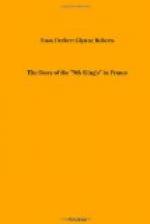Takes wing with the clouds on the waters, and wails to be quit of its
life.
For the spirit and soul of the waste is the wind, and his wings with their
waving
Darken and lighten the darkness and light of it thickened or thinned;
But the heart that impels them is even as a conqueror’s insatiably craving
That victory can fill not, as power cannot satiate the want of the wind.
All these moorlands and marshes are full of his might, and oppose not
Aught of defence nor of barrier, of forest or precipice piled:
But the will of the wind works ever as his that desires what he knows not,
And the wail of his want unfulfilled is as one making moan for her child.
And the cry of his triumph is even as the crying of hunger that maddens
The heart of a strong man aching in vain as the wind’s heart aches
And the sadness itself of the land for its infinite solitude saddens
More for the sound than the silence athirst for the sound that slakes.
And the sunset at last and the twilight are dead: and the darkness is
breathless
With fear of the wind’s breath rising that seems and seems not to sleep:
But a sense of the sound of it alway, a spirit unsleeping and deathless,
Ghost or God, evermore moves on the face of the deep.
THE EMPEROR’S PROGRESS.
A STUDY IN THREE STAGES.
(On the Busts of Nero in the Uffizj.)
I.
A child of brighter than the morning’s birth
And lovelier than all smiles that may
be smiled
Save only of little children undefiled,
Sweet, perfect, witless of their own dear worth,
Live rose of love, mute melody of mirth,
Glad as a bird is when the woods are mild,
Adorable as is nothing save a child,
Hails with wide eyes and lips his life on earth,
His lovely life with all its heaven to be.
And whoso reads the name inscribed or
hears
Feels his own heart a frozen well of tears,
Child, for deep dread and fearful pity of thee
Whom God would not let rather die than see
The incumbent horror of impending years.
II.
Man, that wast godlike being a child, and now,
No less than kinglike, art no more in
sooth
For all thy grace and lordliness of youth,
The crown that bids men’s branded foreheads
bow
Much more has branded and bowed down thy brow
And gnawn upon it as with fire or tooth
Of steel or snake so sorely, that the
truth
Seems here to bear false witness. Is it thou,
Child? and is all the summer of all thy spring
This? are the smiles that drew men’s
kisses down
All faded and transfigured to the frown
That grieves thy face? Art thou this weary thing?
Then is no slave’s load heavier
than a crown
And such a thrall no bondman as a king.




